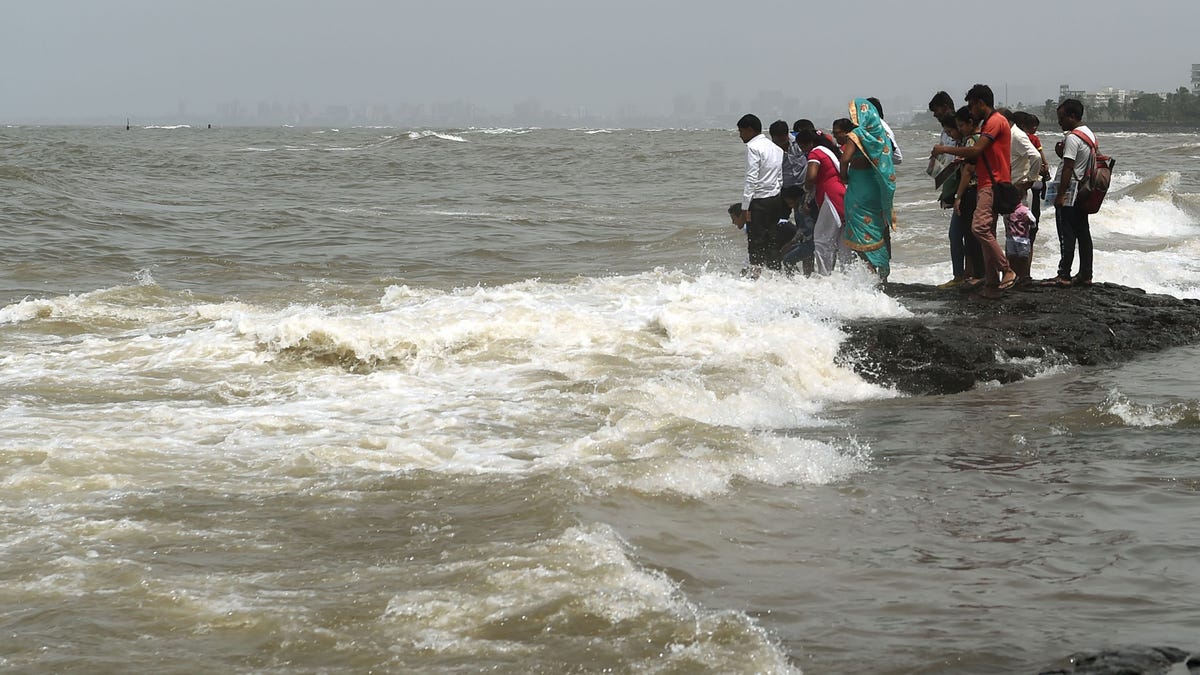Fox News Flash top headlines for Oct. 29
Fox News Flash top headlines for Oct. 29 are here. Check out what's clicking on Foxnews.com
Rising seas this century could flood coastal areas that up to 480 million people call home, according to a study published on Tuesday.
Scientists at Climate Central, a research and communications group, used a new digital model to estimate coastal elevation that improves upon previous figures based on NASA's Shuttle Radar Topography Mission.
NASA's system measures elevation by bouncing radar signals off the surface of the Earth, including trees, skyscrapers or the land itself. That means the method can overestimate elevation levels in places like forests or cities.

In this photograph taken on September 14, 2019 people gather by the sea during high tide in Mumbai. (PUNIT PARANJPE/AFP/Getty Images)
INSTAGRAM REMOVES FICTIONAL DEPICTIONS OF SELF-HARM, SUICIDE
“The global threat from sea level rise and coastal flooding is far greater than what we thought it was,” Benjamin Strauss, who heads Climate Central in Princeton, N.J., told Science News.
Strauss and computational scientist Scott Kulp used a computer algorithm to fine-tune NASA's elevation estimates to account for trees, bridges and other structures.
The researchers examine a range of potential scenarios, including a worst-case one where emissions are left unchecked and disintegrating Antarctic ice cliffs cause the seas to rise dramatically. That would put 480 million people, in terms of where populations live today, at risk, according to the study that was published in Nature Communications.
"In the coming decades, the greatest effects [of sea level rise] will be felt in Asia, thanks to the number of people living in the continent’s low-lying coastal areas. Mainland China, Bangladesh, India, Vietnam, Indonesia, and Thailand are home to the most people on land projected to be below average annual coastal flood levels by 2050," the researchers state in their report.
“We knew it was going to be big, but the fact that there are — when we look at a global scale — three times as many people potentially vulnerable … it’s still quite shocking,” Kulp told Science News.









































